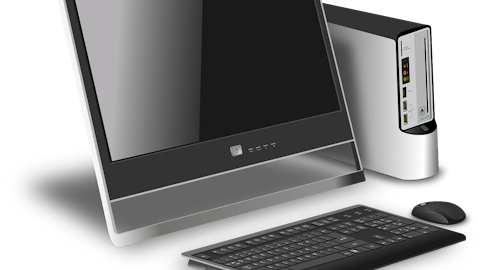3. Microsoft (MSFT)
This is another stock targeted by a high profile activist investor. Jeff Ubben’s ValueAct Capital had more than $3.3 billion invested in the stock. Among our four quant hedge funds AQR had the largest holding valued at $567 million at the end of June. Renaissance Technologies had more than $300 million invested in the stock whereas D.E. Shaw and Two Sigma had $223 million and $16 million respectively. Other hedge fund managers attempted to influence Microsoft’s course in the past (read Einhorn’s speech at the Ira Sohn Conference where he targeted Microsoft), but Jeff Ubben was the one who cut the Gordion’s knot. ValueAct announced a $2 billion stake in Microsoft Corporation (NASDAQ:MSFT) 2.5 years ago when Microsoft shares were changing hands at a dividend-adjusted price of $27. Microsft shares went up 75% since then. Here is what ValueAct said about Microsoft back then:
Follow Microsoft Corp (NASDAQ:MSFT)
Follow Microsoft Corp (NASDAQ:MSFT)
Receive real-time insider trading and news alerts
“We believe that Microsoft suffers a similar perception problem to the one that existed when we initially invested in Adobe. The company has long been regarded as a Windows / PC-cycle stock. In fact, just last week, dire predictions about near term PC deliveries spurred another round of terrible Microsoft headlines. “Microsoft Can’t Keep up in a Mobile World,” read the headline in the April 11th Wall-Street Journal. Sell-side analysts focus on Microsoft’s efforts to drive Windows client success in a changing computing world and have become increasingly bearish after the lukewarm launch of Windows-8, which many hoped would revive PCs. Heather Bellini of Goldman Sachs summed up the popular sentiment well in last week’s downgrade: “we think the most important consideration is whether Microsoft can regain share in the total computing market for PCs, tablets and smart phones.” It seems to us that many investors have simply tucked this stock away in the “open when PCs bottom” file and we believe the company is vastly under-owned by institutional investors.
We’ll save you the trouble and be the first to admit that we aren’t nearly smart enough to correctly call the bottom of the PC market, but we also think a singular focus on PCs completely misses the point at Microsoft. At its current valuation, we don’t even need an opinion on PCs. The current valuation at Microsoft exceeds our 10% cash-on-cash requirement giving no credit for Windows!
Instead of looking at Microsoft through the usual PC lens, we look at it through our “plumbing” lens and we like what we see. Nearly 70% of Microsoft’s earnings come from the enterprise-centric business divisions of Server & Tools and Microsoft Business Division (e.g. Office). These businesses derive 60% of revenue from multi-year annuity agreements and have grown EBIT nearly 10% per year over the past five years.
Microsoft sells products that many enterprise customers spend their entire day consuming, such as a knowledge worker sitting in front of Outlook or an IT manager using Active Directory, at a cost that is often as low as $100 per user per year. These products are deeply embedded in the workflow and the enterprise platform agreement is a powerful means to distribute additional products and features that users value such as SharePoint and Lync for collaboration or System Center for IT management.
Microsoft has demonstrated an ability to drive new and premium products into the enterprise customer base and we believe there are plenty of opportunities for them to continue to drive growth. These businesses have already shown a de-coupling from the PC cycle and Microsoft is accelerating the trend with the subscription based pricing of Office 365. Similar to Adobe’s success with “Creative Cloud,” we see the potential for significant migration of Exchange / Office 365 to the cloud, with pricing upside and
positive implications for the way investors perceive and value Microsoft.
Jeff will be making a presentation on Monday in New York City at the Active-Passive Investor Summit and will be featuring Microsoft in his presentation, announcing our investment in the company publicly for the first time. We have attached the PowerPoint deck of slides that will accompany his presentation at the bottom of this letter.”
Please send us an email if you need a copy of ValueAct’s 2013 Q1 investor letter which contains a copy of its presentation (it is too big to upload here).
Microsoft shares performed very well recently despite the worst market turmoil we have seen since 2011.





